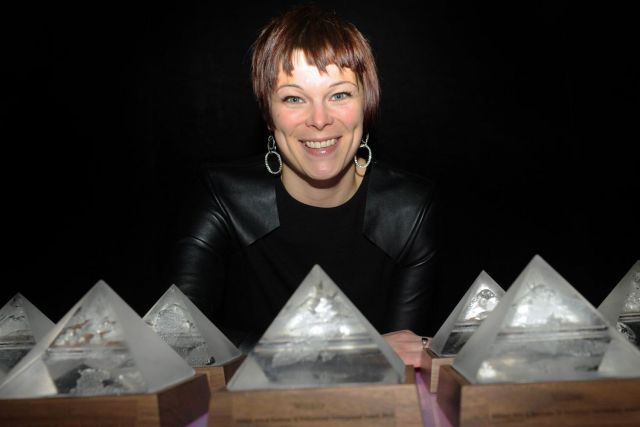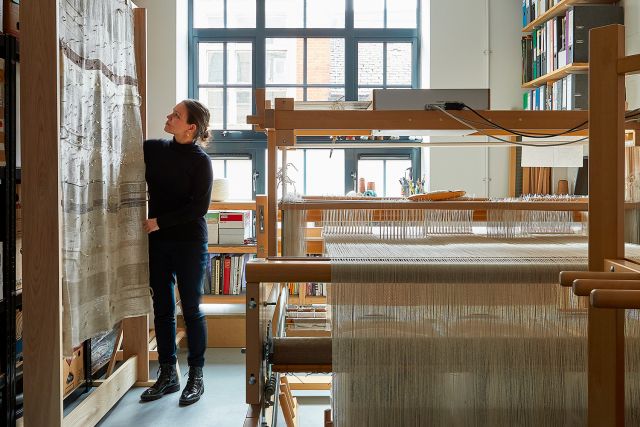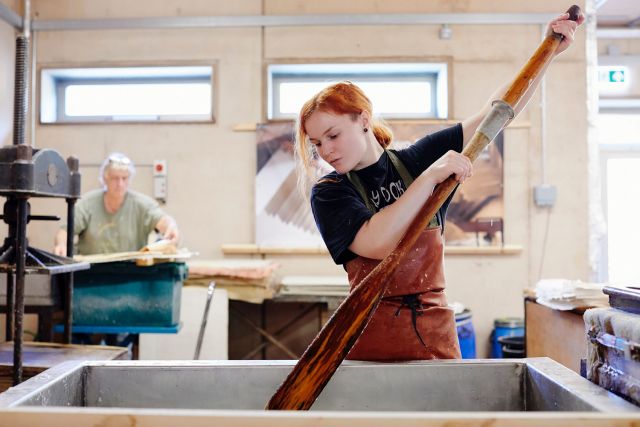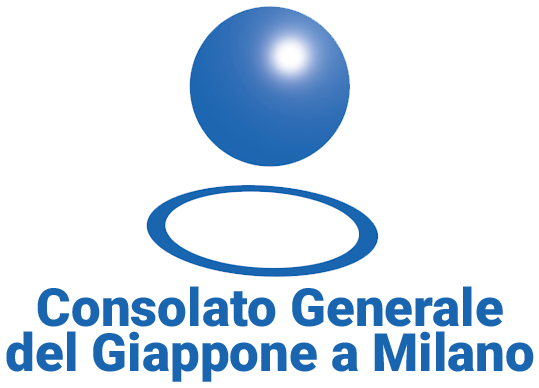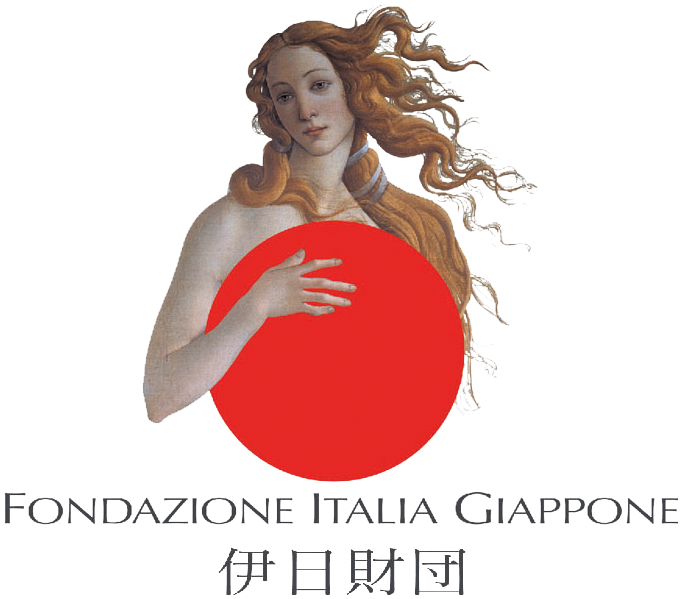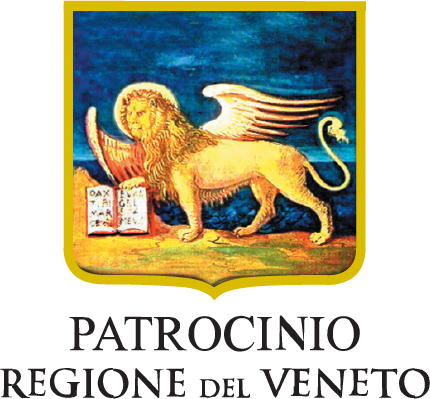This is a triptych of handwoven scrolls made of monochromatic paper yarn and nylon monofilament. An asemic script of horsehair and paper yarns features in the top panels of the two outer scrolls. Light shines through the varying opacities of the triptych giving a repeated presence on the wall behind.
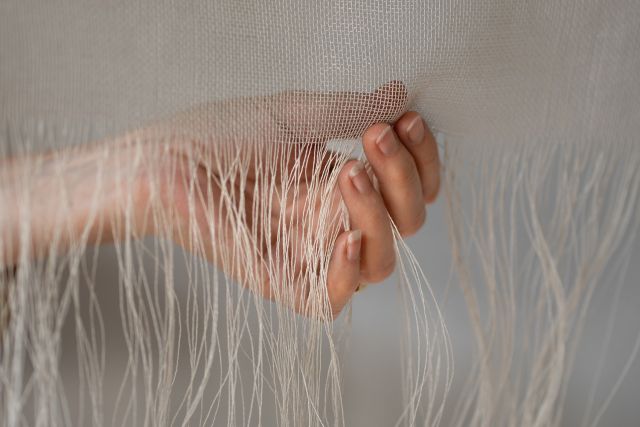
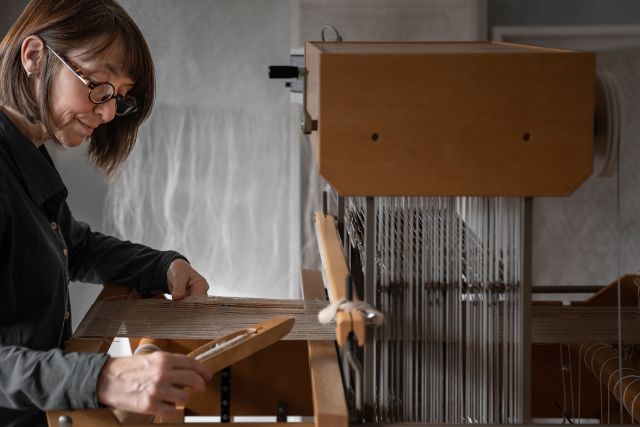
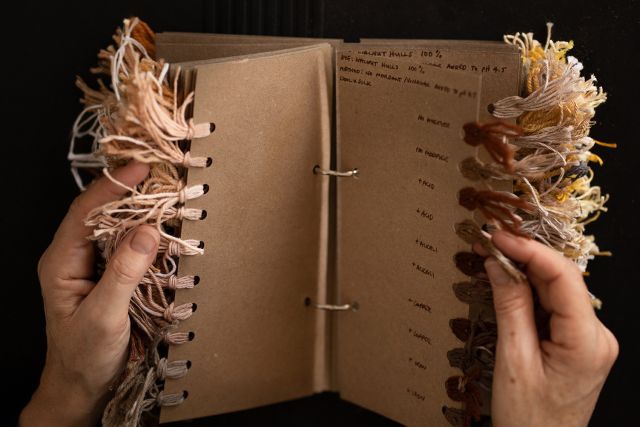
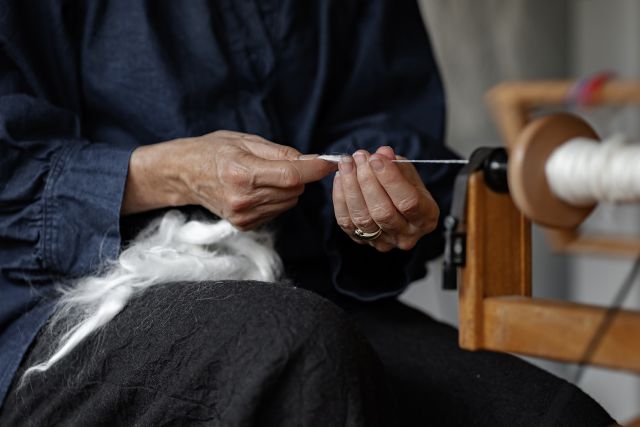
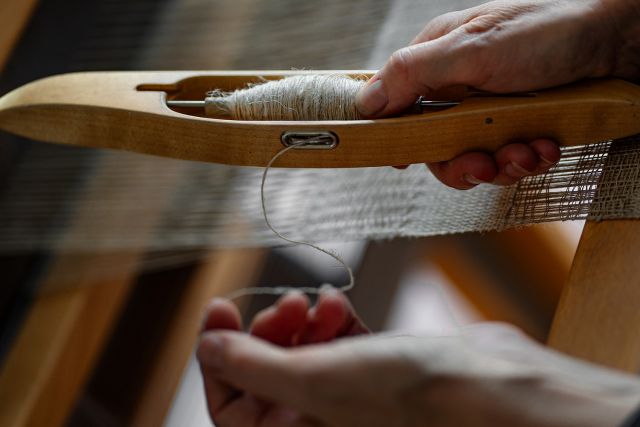
Kendall Clarke
- Weaver
- London, United Kingdom
- Master Artisan
Cockpit Studios, Studio E15, Cockpit Yard, Northington Street, WC1N 2NP London, United Kingdom
By appointment only
+44 7932640413
From linguist to artist
- • Kendall designs and hand crafts 2D and 3D textile art
- • She applies her craft to create artistic narratives
- • Paper, silk and stainless steel are her chosen materials
The apparent simplicity of a piece of fabric can hide an outstanding amount of awareness and experimentation. In Kendall Clarke’s woven art pieces, even basic structures are always the result of a considered construction unveiling the potential of a material, or of a combination of materials. Her subtle, sophisticated works subvert people’s expectations, and suggest a variety of concepts that resonate with today’s world: fragility, precariousness, resilience, survival. Kendall used to be a linguist but got caught by the magic of weaving and took a leap to change her path. To her, weaving is both a language and a way to explore language itself. In her multi-layered woven tales, Kendall often uses paper associated with other materials such as silk and stainless steel, in order to give life to her thoughts through art.
Read the full interviewWorks
Photo: ©Peer Lindgreen

Photo: ©Kendall Clarke
This is a handwoven panel of black silk on stainless steel. A further hand-manipulated technique with extra warp threads produces apertures as it travels diagonally up the piece, creating an oblique pattern of holes joined by dark lines giving a dynamic shadow pattern.

Photo: ©Kendall Clarke
This is a handwoven textile sculpture made with a unique adaptation of the woven shibori technique. The shaping is integral to the structure and gives a complex 3D form which underlies the intricate design of the material. After making, it is piece-dyed with indigo.

Photo: ©Peer Lindgreen
This is a handwoven triptych of monochromatic paper, silk yarn and nylon monofilament. Ancient scripts have been etched into the fabric after weaving using the devoré technique. Areas of inlay add to the varying opacities of the triptych interacting with light to give a repeated presence on the wall behind.

Photo: ©Kendall Clarke
This is a handwoven sculpture in box-form, woven in one piece from monochromatic materials as a mix of single and double weaves, with differing weave structures forming the panels of the box. Tubes of single and double weave with supplementary warp threads stand unsupported inside the box.





